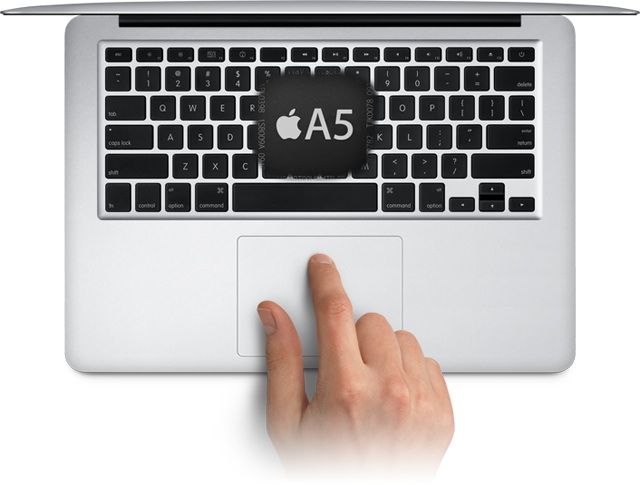Over the years, I’ve seen rumor after rumor that Apple would eventually abandon Intel chips in favor of ARM chips. And time after time, I’ve refuted those arguments, saying that a Mac running ARM processors is not likely to happen anytime soon.
But maybe I’m wrong. Former Apple executive Jean-Louis Gassée — himself a longtime skeptic of Apple’s transition to ARM chips for its desktop and laptop computers — says he’s recently been convinced, and even believes that Apple could release ARM-based Macs as soon as 2016.
Proponents of the theory that Apple will migrate to ARM-based Macs usually argue that the power benefits of switching to ARM make it a very cost-effective move to Apple in a long run. In the past, I have argued that the power-efficiency of ARM chips compared to Intel chips are overblown at the higher clock speeds of desktops and laptops, making them negligible.
But Gassée points out an even better reason for Apple to switch to ARM processors: Steve Jobs’s belief that Apple should be in control of every aspect of its own technology. Even after Jobs’s death, Gassée says, this philosophy is alive and well at Apple.
Apple’s drive to own “all layers of the stack” continues unabated years after Steve’s passing. As a recent example, Apple created its own Swift programming language that complements its Xcode IDE and Clang/LLVM compiler infrastructure.
After pointing out that ARM chips are more power-efficient (which may be negligibly true) and cheaper than Intel’s processors (definitely true), Gassée concludes:
If we follow this line of reasoning, the advantages of ARM-based processors vs. x86 devices become even more compelling: lower cost, better power dissipation, natural integration with the rest of the machine. For years, Intel has argued that its superior semiconductor design and manufacturing technology would eventually overcome the complexity downsides of the x86 architecture. But that “eventually” is getting a bit stale. Other than a few showcase design wins that have never amounted to much in the real world, x86 devices continue to lose to ARM-derived SoC (System On a Chip) designs.
He makes a good point. According to Gassée, he even thinks we could see a desktop-class A10 processor, which would put the eventual migration of the Mac from x86 to ARM to begin at 2016. Which means that in the next two years, iOS and OS X could eventually converge.
What do you think? Let us know in the comments.
Source: Monday Note


